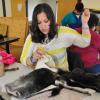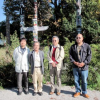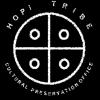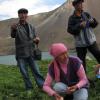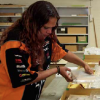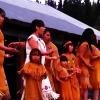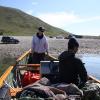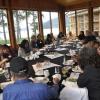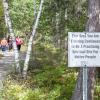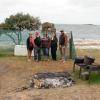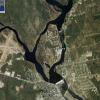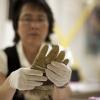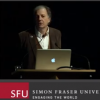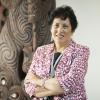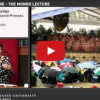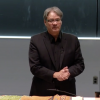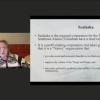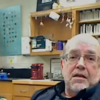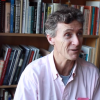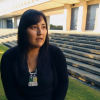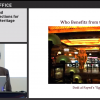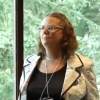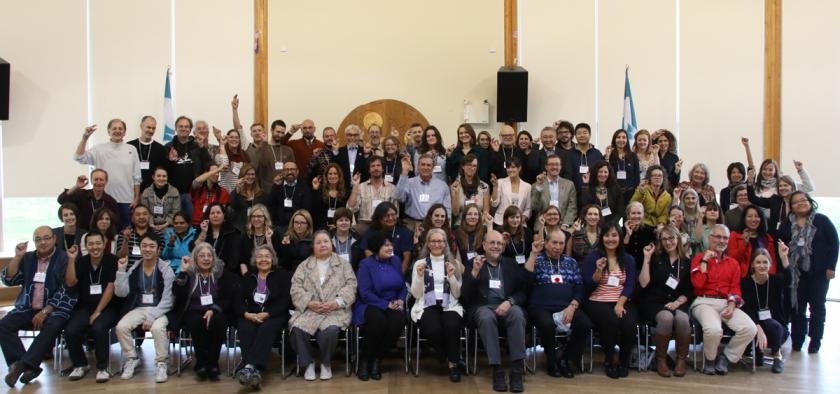
Community-Based Participatory Research (CBPR) methods engage communities in all aspects of the research process.
In IPinCH’s twelve affiliated community initiatives, the communities determined the research goals, which formed the foundation of the initiative, including the practical and theoretical outputs. Our goal has been to help foster balanced and mutually-beneficial relationships between academic and community researchers and to promote fair and culturally appropriate uses of intellectual property. These IPinCH-supported initiatives may serve as positive examples of CBPR methods being put to use to investigate and address pressing cultural heritage needs.
This theme offers a variety of resources to help students, scholars and community representatives think through the implications of community-based research.
Photo: Our team at the IPinCH Fall Gathering (K. McLaughlin).
|
SAA Archaeological Record 15(4):41-47.
George Nicholas, Brian Egan, Kelly Bannister, Emily Benson
2015
|
Reconciling Inequalities in Archaeological Practice and Heritage Research
Transforming Archaeology: Activist Practices and Prospects, edited by S. Atalay, L.R. Clauss, R.H. McGuire, and J.R. Welch, pp.133-158, Left Coast Press , Walnut Creek.
George Nicholas
2014
|
|
Engaging Archaeology: Positivism, Objectivity and Rigor in Activist Archaeology
Transforming Archaeology: Activist Practices and Prospects, edited by S. Atalay, L.R. Clauss, R.H. McGuire, and J.R. Welch, pp.45-59, Left Coast Press, Walnut Creek
Sonya Atalay
2014
|
Activating Archaeology
Transforming Archaeology: Activist Practices and Prospects, edited by S. Atalay, L.R. Clauss, R.H. McGuire, and J.R. Welch, pp.197-214, Left Coast Press, Walnut Creek
K. Anne Pyburn
2014
|
|
SAA Archaeological Record, Special Forum: International Collaborations 12.4 (pp.30-32)
George Nicholas and the IPinCH Collective
2012
|
Archaeological Review from Cambridge 26.2 (pp.11-30)
George P. Nicholas, Amy Roberts, David M. Schaepe, Joe Watkins, Lyn Leader-Elliot and Susan Rowley
2011
|
|
Heritage Management 3.1 (pp.117-147)
George Nicholas, Catherine Bell, Rosemary Coombe, John Welch, Brian Noble, Jane Anderson, Kelly Bannister, and Joe Watkins
2010
|
Using Ethnographic Methods to Articulate Community-Based Conceptions of Cultural Heritage Management
Public Archaeology: Archeological Ethnographies, Vol. 8 No. 2-3 (pp. 141-160)
Julie Hollowell and George Nicholas
2009
|
|
SFU Aboriginal Lecture Series
George Nicholas
2016
|
Sq'ewlets: A Sto:lo-Coast Salish Community in the Central Fraser Valley - A Community-based Collaborative Virtual Museum of Canada Project
Sto:lo People of the River Conference
Natasha Lyons, Dave Schaepe, Kate Hennessy, Kyle McIntosh, Mike Blake, Patricia Ormerod
2015
|
|
IPinCH Fall Gathering
Sonya Selanoff and Holly Cusack-McVeigh
2014
|
Community-Based Cultural Heritage Research: Insights, Challenges, and Possibilities from the IPinCH Project
SFU Research and Environmental Management Department Seminar Series
George Nicholas
2014
|
|
Building Connections, Protocols, and Toolkits from Comparative Community-Based Research
Native American and Indigenous Studies Association Conference
Lena Mortensen
2013
|
Sto:lo People of the River Conference: Sharing Experience and Building Knowledge
Rachel Giraudo
2013
|
|
Beyond the Equator (Principles): Community Benefit Sharing in Relation to Major Land Alteration Projects and Associated Intellectual Property Issues in Cultural Heritage
Society for American Archaeology Annual Meeting (Honolulu, Hawaii)
John Welch and Ian Lilley (Panel Organizers)
2013
|
Community-Based Research: Theory, Practice, Policy and Ethics
American Anthropological Association Annual Meeting (Sacramento, CA)
Julie Hollowell (session organizer)
2012
|
|
Participatory Planning, Core Tribal Values, and Knowledge Mobilization in Community-Based Research
Central States Anthropological Society Conference (Toledo)
Sonya Atalay
2012
|
Building Capacity for Community-Based Research in the University: Lessons from IPinCH
Central States Anthropological Society Conference (Toledo)
Julie Hollowell
2012
|
|
Public History Seminar Series, Kings College London
Alison Wylie
2012
|
American Anthropological Association Conference, Session: Reversing the Legacy of Colonialism in Heritage Research (Montreal, Quebec)
George Nicholas
2011
|
|
Community Initiatives and Archaeology: The Ngaut Ngaut Interpretive Project
American Anthropological Association Conference, Session: Reversing the Legacy of Colonialism in Heritage Research (Montreal, Quebec)
Amy Roberts
2011
|
Reversing the Legacy of Colonialism in Heritage Research
American Anthropological Association Annual Meeting (Montreal, QC)
Stephen Loring (session organizer)
2011
|
|
Learning Together: Core Tribal Values, Transformative Influences, and Shared Benefit
World Archaeological Congress Intercongress (Indianapolis)
Shannon Martin, W. Johnson, Sonya Atalay
2011
|
Achieving Reasonable Balance in Archaeological Practice
Society for American Archaeology (Sacramento, CA)
George Nicholas
2011
|
|
Essential Tensions in Archaeological Theory and Practice
Stanford Archaeology Centre, Archaeology Workshops Series (Stanford, CA)
George Nicholas
2010
|
Community-Based Fieldwork with the Innu of Labrador: Lessons from Thirty Years of Collaboration
Symposium on Ethics and Community-Based Fieldwork, DePauw University (Greencastle, IN)
Stephen Loring
2009
|
|
Decolonizing Research Methods: Lessons From The First Nations Cultural Heritage and Law Project
Symposium on Ethics and Community-Based Fieldwork, DePauw University (Greencastle, IN)
Catherine Bell
2009
|
Developing Practical Guidelines for the Protection of Indigenous and Traditional Knowledge through Community-based Initiatives
Symposium on Ethics and Community-Based Fieldwork, DePauw University (Greencastle, IN)
Jane Anderson
2009
|
|
Using Ethnographic Methods to Articulate Community-Based Conceptions of Heritage Management and Explore Intellectual Property Issues in Archaeology
Wenner Gren Workshop on Archaeological Ethnographies: Charting a Field, Devising Methodologies (Poros, Greece)
Julie Hollowell and George Nicholas
2008
|
|
George Nicholas
|
|
|
Linda Tuhiwai Smith
|
Grand Chief Edward John
|
|
Rosita Worl
|
Larry Zimmerman
|
|
John Welch
|
Robin R.R. Gray
|
|
George Nicholas
|
|
|
Catherine Bell
|


